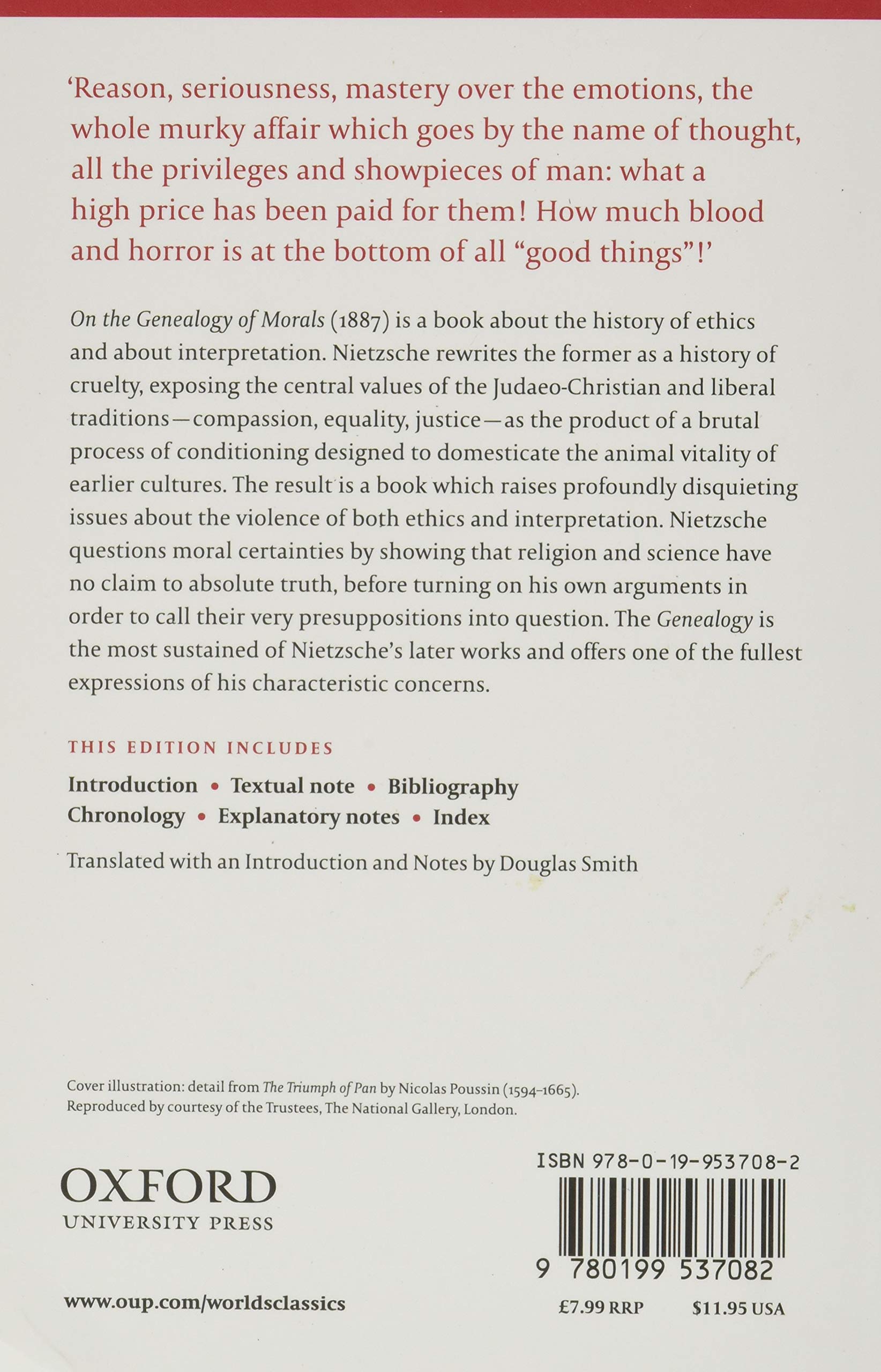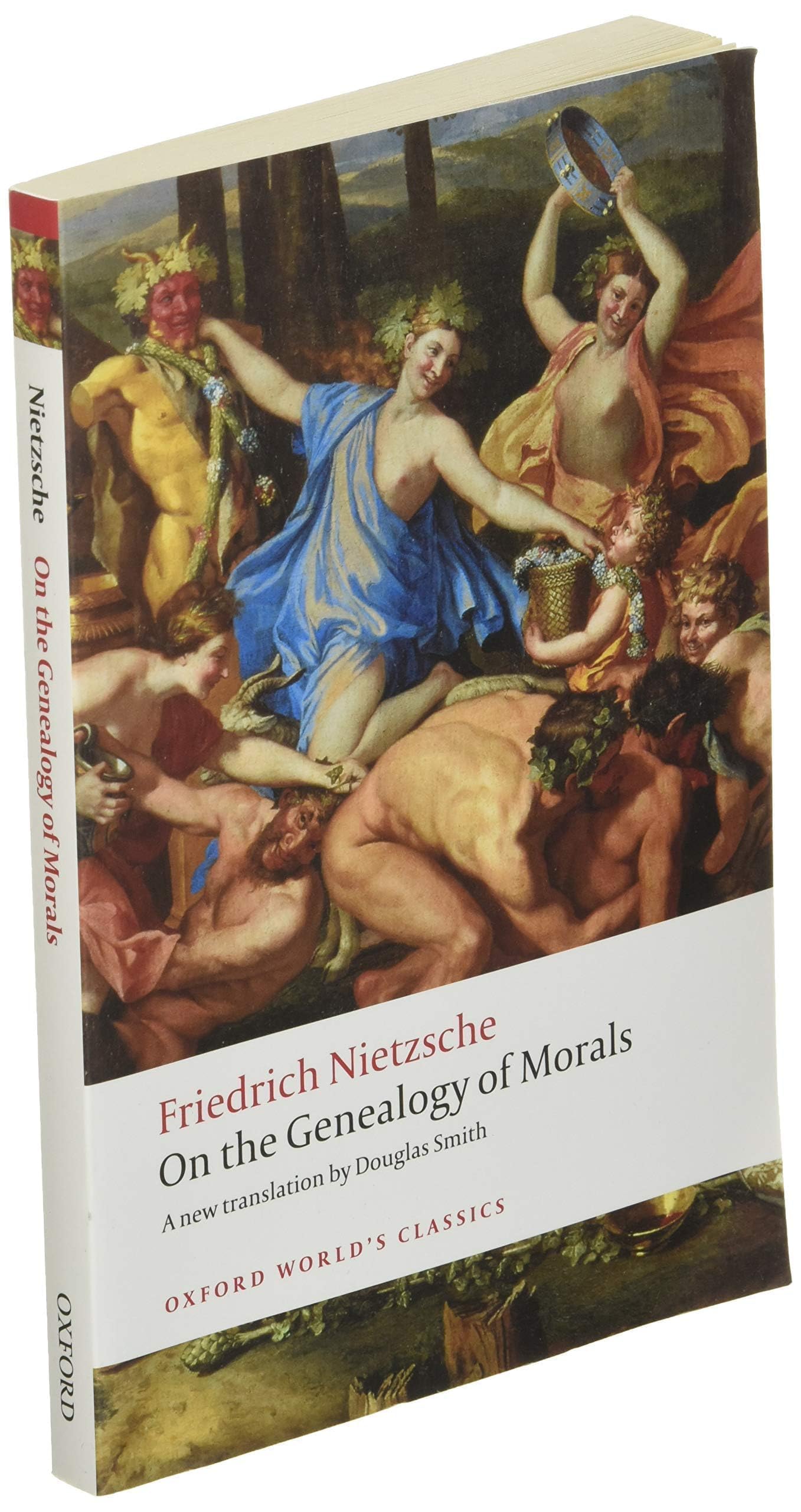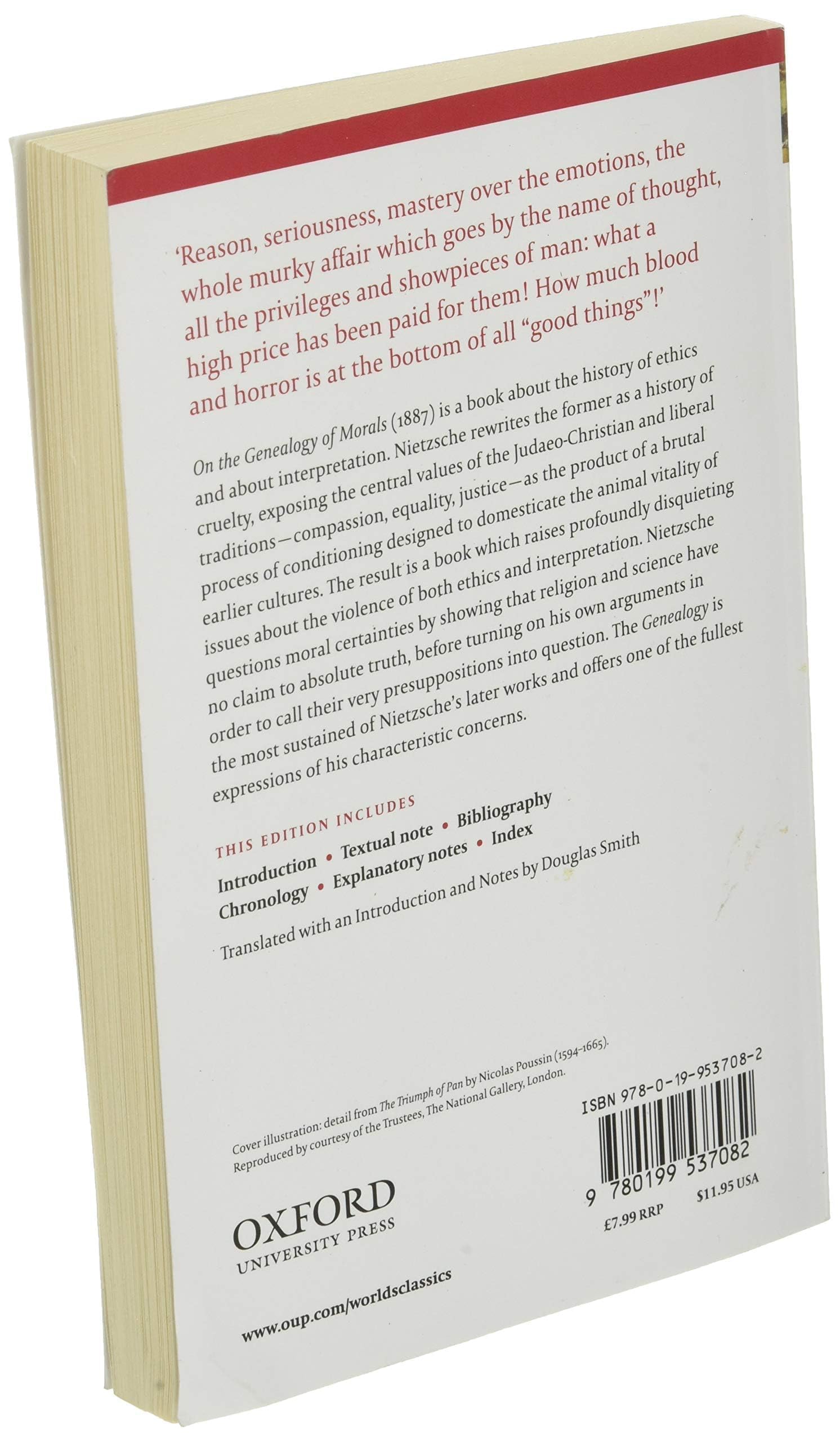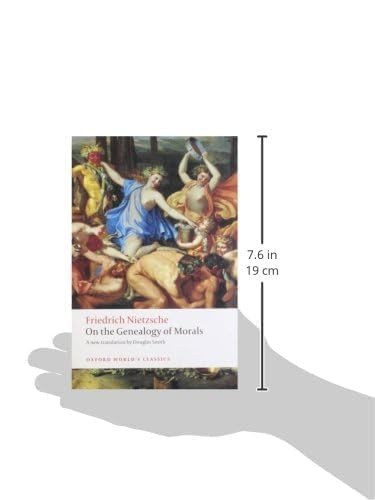Customer Services
Copyright © 2025 Desertcart Holdings Limited






On the Genealogy of Morals (Oxford World's Classics)


G**Z
I've been told.
Some very close Friends of Mine suggested this book. I've not read too much of It as yet as I'm finishing up another book in My spare time, It looks like an experience tho. The book came in great shape just as the Seller described, "If not Better" I thank Them and You. Have a Happy and Healthy 2014.
L**O
Food for thought
One needs to read any of Nietzsche's works several times before one begins to understand him. Be patient, it is all worth it.
F**Y
great book
I ordered this book for my son for school and he passed the class so I would assume that the book was what he needed. Would definitely recommend.
W**6
Four Stars
Not one of my favorite Nietzsche books about the high priest and relations to will and man and morals.
B**O
Five Stars
Item was as described and arrived on time.
L**E
Living in his mind
I know I should fall over from the sheer joy of the experience of Nitzsche but mostly I was just falling over
J**N
Five Stars
One of the 19th century's greatest authors. This is one of his classics.
T**R
Good translation
Very readable translation!
Trustpilot
2 weeks ago
1 month ago
2 weeks ago
3 weeks ago